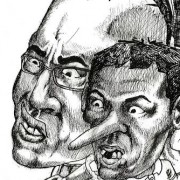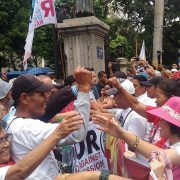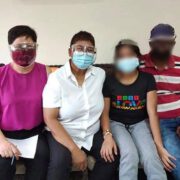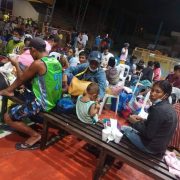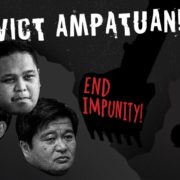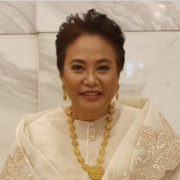RP falls in 2024 press freedom index due to red-tagging, Cumpio’s continuing imprisonment
The Philippines fared worse in the World Press Freedom Index, falling by two points to 134th out of 180 countries this year compared to 132nd in 2023.
Red-tagging and the continued detention of community journalist and broadcaster Frenchie Mae Cumpio were two of the factors in the drop, global press freedom watchdog Reporters Without Borders (Rapporteurs Sans Frontieres, RSF) in its latest report said.
RSF said that while policies under President Ferdinand Marcos Jr. appear “more consensual” compared to his predecessor Rodrigo Duterte, “authorities still often resort to red-tagging.”
The group described red-tagging as a practice inherited from the colonial era and Cold War in which journalists who do not toe the government line are branded as “subversive elements” or “reds.”
“This is tantamount to telling law enforcement that they (critical, independent journalists) are legitimate targets for arbitrary arrest or even summary execution,” RSF explained.
The latest index said the Philippine is one of the world’s most dangerous countries for journalists where impunity for crimes against them “is almost total.”
The Philippines is classified as a “difficult” country while Scandinavian countries such as Norway, Sweden, Denmark and Iceland are categorized as “good” alongside Portugal, Finland and Greenland
RSF said that while the Philippine government set up the Presidential Task Force on Media Security in 2016 but the inter-ministerial body has proved “unable to stem the vicious cycle of violence against journalists.”
The index also lists Cumpio as a journalist in detention despite efforts by government prosecutors to paint her as a member of an underground Communist group, the New People’s Army.
Greater concentration in ownership
RSF also said ownership in mainstream media has also recently reached even greater levels of concentration than in the past, “a development accompanied by closer ties between media owning families and political barons at regional and national levels.”
“The ABS-CBN/GMA duopoly is now being challenged by a third media giant, the Villar family’s Villar Group, which is openly affiliated to former President Duterte’s clan,” it said.
The Villars is the country’s richest family that counts among its members senators and representatives in the Philippine Congress.
“Even more worrying is the growing influence of the current President Marcos’s cousin, Martin Romualdez, who is Speaker of the House of Representatives. In 2023, his company, Prime Media, which owns the Manila Standard newspaper, established a joint venture with ABS-CBN’s radio business to gain even more influence,” RSF added.
Romualdez is touted by his supporters to be presidential timber in the 2028 national elections against Vice President Sara Duterte in what is seen as a massive clash of political dynasties who have had presidents among members.

Media safety summit approves declaration
Meanwhile, Philippine independent media organizations and more than a hundred leading journalists and journalism educators from all over the country concluded the two-day First Philippine Media Safety Summit with a declaration affirming independent and critical journalism last May 3, World Press Freedom Day, in Quezon City.
The declaration also condemned the killing of journalist and the lack of resolution of cases as well as the deliberate targeting of journalists and media organizations.
The media safety summit was organized by the Asian Institute for Journalism and Communication, the Center for Community Journalism and Development, the University of the Philippines College of Mass Communication, the Freedom for Media-Freedom for All Coalition, MindaNews, National Union of Journalists of the Philippines (NUJP), the Peace and Conflict Journalism Network, the Philippine Center for Investigative Journalism and the Philippine Press Institute.
The summit was joined by the Commission on Human Rights, Internews, the Royal Norwegian Government, various projects under the United Nations in the Philippines as well as Karapatan, College Editors’ Guild of the Philippines and the People’s Alternative Media Network.
The NUJP led a World Press Freedom Day rally at the Boy Scout’s Circle in Quezon City after the declaration’s approval. # (Raymund B. Villanueva)


